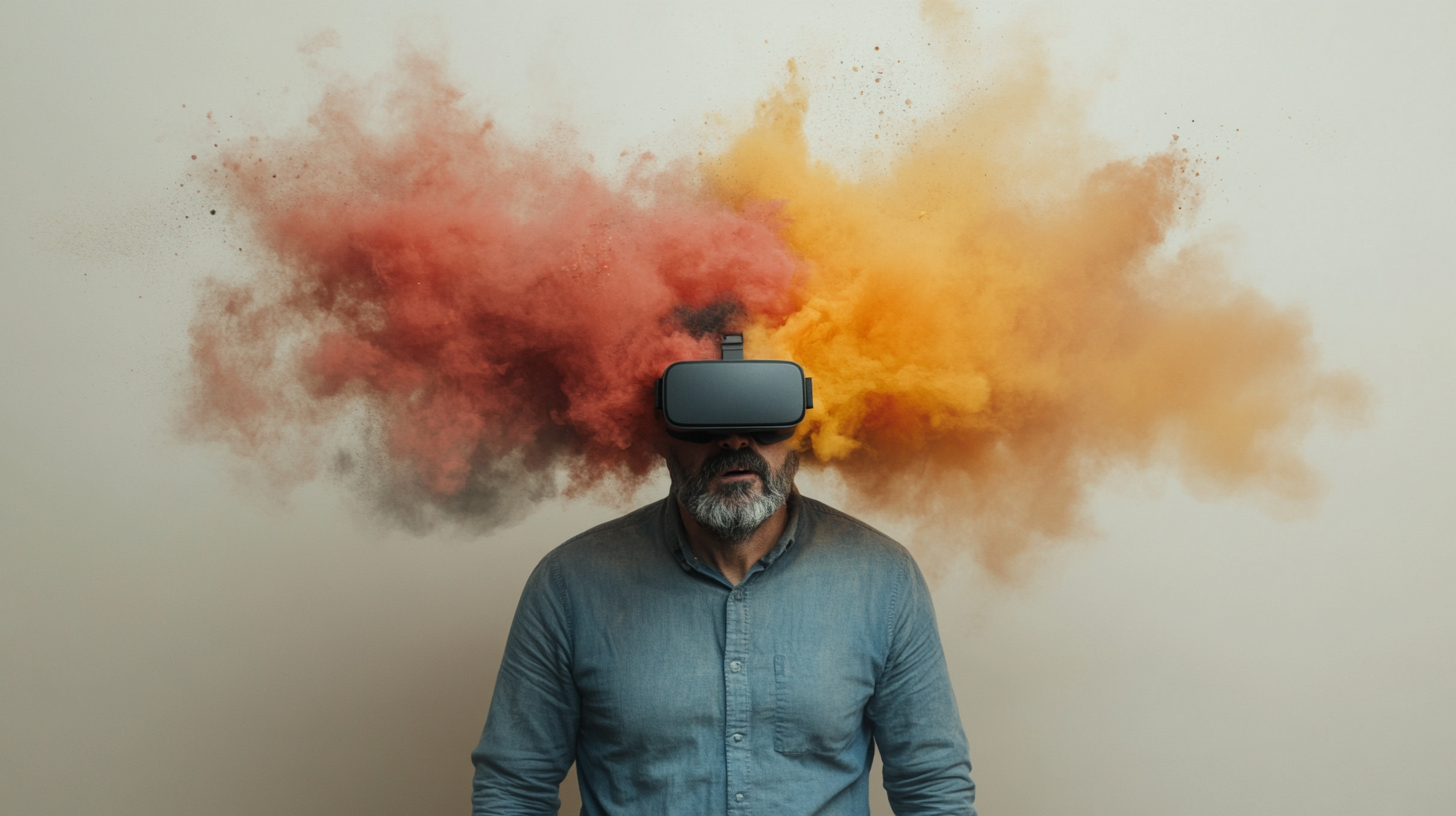Meta is setting a new standard in the tech industry with the introduction of Orion, the most advanced augmented reality glasses. But while AR is becoming increasingly popular, one question remains: can the development of AR, especially with Orion, positively influence the fate of VR once again?
Retrospective: the hype and challenges of VR
In a 2022 article, I analyzed the development of the VR market and the reasons why virtual reality has not made the breakthrough that many predicted. Despite the initial hype and large investments, VR fell short of expectations in many ways. The reasons were manifold: high costs, clunky headsets and technological hurdles that prevented widespread adoption. Many people found the immersive experience overwhelming or even uncomfortable, leading to the phenomenon of so-called “VR sickness”.
Furthermore, there was a lack of “killer content” that would motivate users to use the technology regularly. Applications such as virtual reality trips or 360-degree films caused a stir, but remained the exception.
AR on the rise
Augmented Reality (AR), on the other hand, continued to develop steadily and has already found numerous popular fields of application. AR seemed more accessible and less alien to users. Games like Pokémon Go or practical tools like Google Maps Live View showed the potential of integrating digital information into the real world.
With the introduction of Orion, Meta has now launched a pair of glasses that take AR to the next level by projecting digital content directly into the user’s field of vision without losing touch with the real world. Similar to Apple’s Vision Pro.
Can AR pave the way for VR?
The tantalizing question is: could Orion’s development of AR help VR take off again? Indeed, advances in AR technology could also benefit VR, particularly in areas such as miniaturization, ease of use, and immersive content.
While VR is often perceived as isolating, AR offers the opportunity to anchor the user in both the physical and digital worlds at the same time. This balance could help to make future VR experiences more enjoyable. The development of technologies like Orion shows that Meta is able to bring immersive experiences into a format suitable for everyday use, which could perhaps also pave the way for wider adoption of VR.
A look into the future
Although VR has fallen short of expectations in recent years, the technology still has great potential, particularly in niche areas such as education, therapy or specialized forms of entertainment. Perhaps the future lies in a symbiosis of AR and VR, in which the advances of one technology benefit the other.
Meta has shown with Orion that the technological development in the field of AR and VR is far from over. The coming years will show whether these innovations will not only change the way we experience augmented reality, but also give virtual reality a new boost.
Conclusion: the Orion idea not only raises the question of the extent to which AR can change our daily lives, but also whether it can serve as a bridge to bring VR back into the spotlight. Perhaps we are just not yet ready for full immersion in virtual worlds – but AR like Orion could bring us a step into that future.
Source: https://about.fb.com/news/2024/09/introducing-orion-our-first-true-augmented-reality-glasses/
https://www.justusbecker.com/road-to-ai/my-2017-prediction-on-medium-awkward























